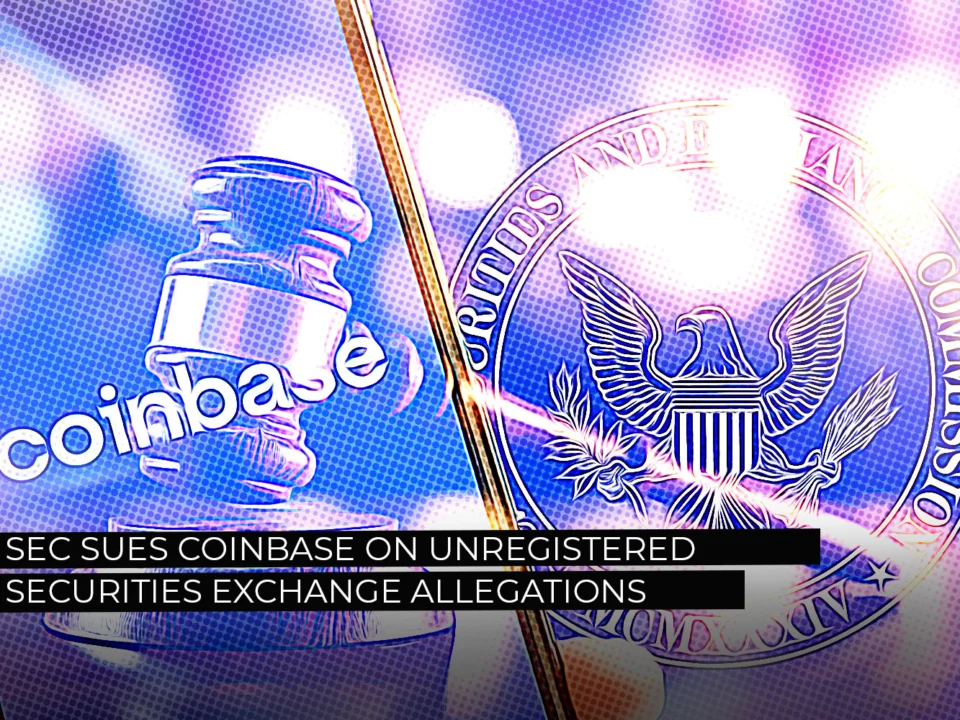The SEC has recently filed a lawsuit against Coinbase, alleging that the crypto exchange has been operating as an unregistered securities exchange. This lawsuit has significant repercussions for both Coinbase and the broader cryptocurrency market. The case exemplifies ongoing regulatory scrutiny within the crypto industry, raising questions about compliance and the future of digital asset trading. As legal and regulatory bodies respond, the outcome of this case could shape the regulatory landscape for cryptocurrencies in the United States and beyond.
Background of the SEC’s Allegations Against Coinbase

The SEC recently filed a lawsuit against Coinbase, alleging that the crypto exchange operated as an unregistered securities exchange. According to the SEC, Coinbase facilitated transactions involving digital assets that should legally be classified as securities. This action comes amid growing scrutiny of cryptocurrency platforms, as the SEC aims to bring regulatory clarity to digital financial markets.
In detail, the SEC claims:
- Unregistered Securities: Coinbase listed several digital tokens that the SEC deems securities, necessitating proper registration.
- Investor Protection: The suit argues that unregistered exchanges lack the necessary oversight to protect investors adequately.
- Market Integrity: Ensuring market integrity is central to the SEC‘s mission, and unregistered exchanges pose risks.
Note: The SEC bases its allegations on the Securities Act of 1933 and the Securities Exchange Act of 1934, both designed to regulate securities and protect investors.
Understanding these allegations is crucial, as they may set a precedent for how digital asset exchanges operate under U.S. law. The SEC’s move reflects its commitment to regulating the burgeoning crypto market more stringently.
Implications for Coinbase and the Wider Crypto Market
The SEC’s allegations against Coinbase hold significant implications for both the company and the broader crypto market. Firstly, Coinbase faces potential financial penalties and could be required to modify its business practices to comply with SEC regulations. This may include:
- Costly fines
- Operational adjustments to meet compliance standards
- Increased legal scrutiny from other regulatory bodies
Moreover, the wider crypto market could experience a ripple effect. As industry players watch the SEC’s actions closely, they may anticipate stricter regulations and enforcement actions, leading to increased caution. This scrutiny might result in:
- Market volatility as investor confidence fluctuates
- Compliance costs for smaller exchanges attempting to align with regulatory expectations
- Delisting of certain digital assets deemed as "unregistered securities"
Finally, this lawsuit could prompt a broader dialogue on regulatory frameworks for the crypto industry. It emphasizes the urgent need for clear guidelines to ensure that exchanges can operate without the constant threat of legal action. Thus, the SEC’s move against Coinbase is more than a single lawsuit; it is a pivotal moment for the future of cryptocurrency regulation.
Legal and Regulatory Responses to the Lawsuit
The SEC’s lawsuit against Coinbase over unregistered securities exchange allegations has prompted various legal and regulatory responses. Regulatory bodies and legal experts have quickly reacted:
- Immediate Regulatory Scrutiny: Since the SEC filed the lawsuit, other regulatory authorities have started scrutinizing crypto exchanges more thoroughly. This is likely to lead to stricter regulatory frameworks in the crypto industry.
- Legal Precedents: The outcome of this lawsuit could set vital legal precedents for how cryptocurrencies are classified and regulated going forward. This can influence future cases involving crypto exchanges.
- Industry Reactions: Several industry leaders have issued statements supporting Coinbase, while others have called for increased clarity from the SEC on what constitutes a security in the crypto space.
Potential Outcomes:
| Outcome | Impact on Coinbase | Impact on Crypto Market |
|---|---|---|
| Coinbase Wins | Strengthened position, potential for clearer guidelines | Reduced legal uncertainty, possible regulatory ease |
| SEC Wins | Fines, operational restrictions for Coinbase | Increased regulatory oversight, potential market dip |
These responses and potential outcomes highlight the significant role that the SEC’s actions could play in shaping the future of cryptocurrency regulation.
Frequently Asked Questions
What are the allegations made by the SEC against Coinbase?
The U.S. Securities and Exchange Commission (SEC) has filed a lawsuit against Coinbase, alleging that the cryptocurrency exchange has been operating an unregistered securities exchange. The SEC claims that Coinbase has facilitated the trading of digital assets that should be considered securities, and therefore, requires proper registration and regulatory oversight.
Why does the SEC consider some digital assets on Coinbase as securities?
The SEC’s stance is based on the idea that certain digital assets meet the criteria of an "investment contract" as defined under the Howey Test, a framework used to determine whether a transaction qualifies as an investment subject to securities laws. If a digital asset can be classified as a security, it must be registered with the SEC to ensure compliance with regulatory requirements designed to protect investors.
What is Coinbase’s response to the SEC’s lawsuit?
Coinbase has denied the allegations and insisted that it operates a fully compliant platform. The company argues that it has sought clarity from the SEC regarding the classification of digital assets and that the current regulatory framework is outdated and ill-suited for cryptocurrencies. Coinbase plans to vigorously defend itself in court, aiming to prove that its platform should not be subjected to securities regulations.
How might this lawsuit impact the broader cryptocurrency market?
The SEC’s action against Coinbase could set a significant precedent for the cryptocurrency industry. If the court rules in favor of the SEC, it could lead to increased regulatory scrutiny for other crypto exchanges and digital assets, potentially requiring them to register as securities exchanges. This could result in more stringent compliance requirements and may shape the future regulatory landscape of the cryptocurrency market.







